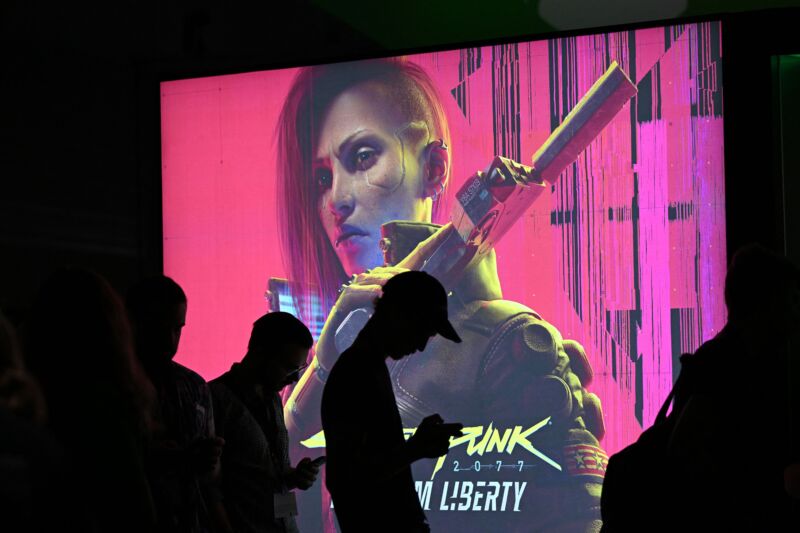Cyberpunk 2077 cost more than $400 million to make and market, making it likely the most expensive video game (actually released) so far. The game's Polish developer, CD Projekt Red (CDPR), kept spending big after launch, and it seems like it has paid off—because it had to.
The publicly traded developer recently opened up to investors about its finances. It's a good time for the company to tell its story. Cyberpunk 2077 recently saw a well-regarded 2.0 patch, an Edgerunners anime that caught on, and a Phantom Liberty DLC that's winning over fans and newcomers. A sequel has been announced, and even a live-action component is in the works.
Taking CDPR's numbers and doing a few rough currency conversions from PLN to USD, you arrive at a number well over $120 million, depending on how you classify the work:
- $40–$41 million on console work after launch and developing the 2.0 update
- $85–$86 million on making and promoting Phantom Liberty
Elsewhere in their presentation, CDPR representatives said that the game had sold 25 million copies since its 2020 launch, and that Phantom Liberty was at 3 million sales in its first week. The Witcher 3 and its DLC took more than four years to reach that mark, CEO Adam Kiciński said during the presentation. Despite the seemingly encouraging numbers, CDPR has stood firm that it will not expand the game any further, instead focusing on future projects and using the Unreal Engine instead of its house-made REDengine to save costs and increase flexibility.
A game studio telling its investors that it has sold millions of copies and that it's optimistic about future releases isn't particularly surprising. What's notable is CDPR's dogged insistence on keeping with a game that launched seemingly far too early, with issues in tech and, according to some, story and gameplay design that would always be broken. But it may have been its only real choice.
"Broken game makes good" has become something of a trope in games discourse. No Man's Sky set the modern template, with vague promises and marketing begetting a highly underwhelming launch. But in the post-shrink-wrap era, a developer can keep working on a game and even transform it. No Man's Sky NEXT felt to some like the game they'd imagined, and Beyond felt like an in-place sequel had been built inside the game's chassis; the game has continued to win fans and convert early skeptics.
The delta between the narrative of Cyberpunk 2077's launch and its present-day success, both financially and critically, is certainly sizable. But CDPR isn't an independent developer with a relatively small staff, or a major studio with numerous titles around which to shuffle staff. It couldn't just pretend a launch failure, like an Anthem (although that game, seemingly, still exists in skeletal form), never happened, despite the developer's aims to fix it.
Kiciński told Reuters in April 2021, with the game yet to be patched for then next-gen consoles, that he didn't "see an option to shelve Cyberpunk 2077." CDPR wanted to be "proud" of the game, he said, and "sell it for years to come." For the 2021 year, the company reported just under $500 million (USD) in assets. A $400 million game like Cyberpunk wasn't something the company, or its more than 1,200 employees, could just leave behind.
During this week's investor presentation, executives noted that development of the Cyberpunk sequel, known as "Project Orion" for now, would be split between a North American office and Poland so that the developer could work on two titles simultaneously. That's likely a big part of why the company is moving toward Unreal Engine development, seemingly for both Cyberpunk and the next Witcher game, rather than relying entirely on its house-made engine. CDPR said it was moving toward Unreal for "development predictability and efficiency." Given the seven-year span between Cyberpunk 2077's announcement and its still-not-ready launch and the uncertainty afterward, it seems like a good bet.



3175x175(CURRENT).thumb.jpg.b05acc060982b36f5891ba728e6d953c.jpg)
Recommended Comments
There are no comments to display.
Join the conversation
You can post now and register later. If you have an account, sign in now to post with your account.
Note: Your post will require moderator approval before it will be visible.